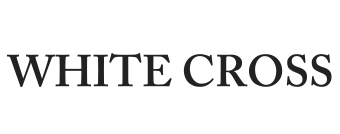日本語AIでPubMedを検索
チオグアニンの継続的な再発見とベネフィットリスク比、総説
The continuous rediscovery and the benefit-risk ratio of thioguanine, a comprehensive review.
PMID: 32090622 DOI: 10.1080/17425255.2020.1719996.
抄録
:1950年代、小児白血病の治療薬として、アザチオプリン(AZA)、メルカプトプリン(MP)とともにチオプリン誘導体であるチオグアニン(TG)が開発されました。長年にわたり、TGの使用は、主に免疫介在性疾患や炎症性疾患、例えば皮膚科やリウマチ(乾癬、全身性エリテマトーデス(SLE))、消化器科や肝臓(炎症性腸疾患(IBD)、自己免疫性肝炎)などの分野でも検討されてきました。このレビューは、TGのすべての臨床的用途の包括的な概要を提供し、その作用機序、薬物動態/薬力学的特徴、および毒性について説明しています...チオグアニンは、血液学的(特に白血病)および乾癬、SLE、多血症、チュルク=ストラウス症候群、IBD、膠原病性スプルー、難治性セリアック病、自己免疫性肝炎を含むいくつかの免疫炎症性疾患において有益な臨床効果を示している。チオグアニンは、固形癌の治療に有効ではありません。比較的低用量では、.0.2-0.3mg/kg/日または20mg/日の比較的低用量では、TGは良好なリスク-ベネフィット比を有し、他のIBD患者の間での長期治療において安全で効果的な薬剤である。チオグアニンの毒性、特に骨髄毒性、肝臓の結節性再生過形成(NRH)を含む肝毒性は、適切に投与した場合には限定的である。NRHの発現は用量依存的であり、特に40mg/日以上の高用量TG中に発現することが報告されている。
: In the 1950s, thioguanine (TG), a thiopurine-derivative together with azathioprine (AZA) and mercaptopurine (MP), were developed for the treatment of childhood leukemia. Over the years, the use of TG was also explored for other, mainly immune-mediated and inflammatory, diseases such as in the field of dermatology and rheumatology (. psoriasis, systemic lupus erythematosus (SLE)) and gastroenterology and hepatology (. inflammatory bowel diseases (IBD), autoimmune hepatitis).: This review provides a comprehensive overview of all the clinical uses of TG and describes its mechanism of action, pharmacokinetic/pharmacodynamic features, and toxicity.: Thioguanine has shown beneficial clinical effects in hematological (particularly leukemia) and several immune-inflammatory diseases including psoriasis, SLE, polycythemia vera, Churg-Strauss syndrome, IBD, collagenous sprue, refractory celiac disease, and autoimmune hepatitis. Thioguanine is not effective in treating solid-cancers. At relatively low dosages, . 0.2- 0.3mg/kg/day or 20 mg/day, TG has a favorable risk-benefit ratio and is a safe and effective drug in the long-term treatment of amongst other IBD patients. Thioguanine toxicity, especially myelotoxicity, and hepatotoxicity, including nodular regenerative hyperplasia (NRH) of the liver, is limited when dosed adequately. The occurrence of NRH appears dose-dependent and has been especially described during high dose TG above 40 mg/day.


